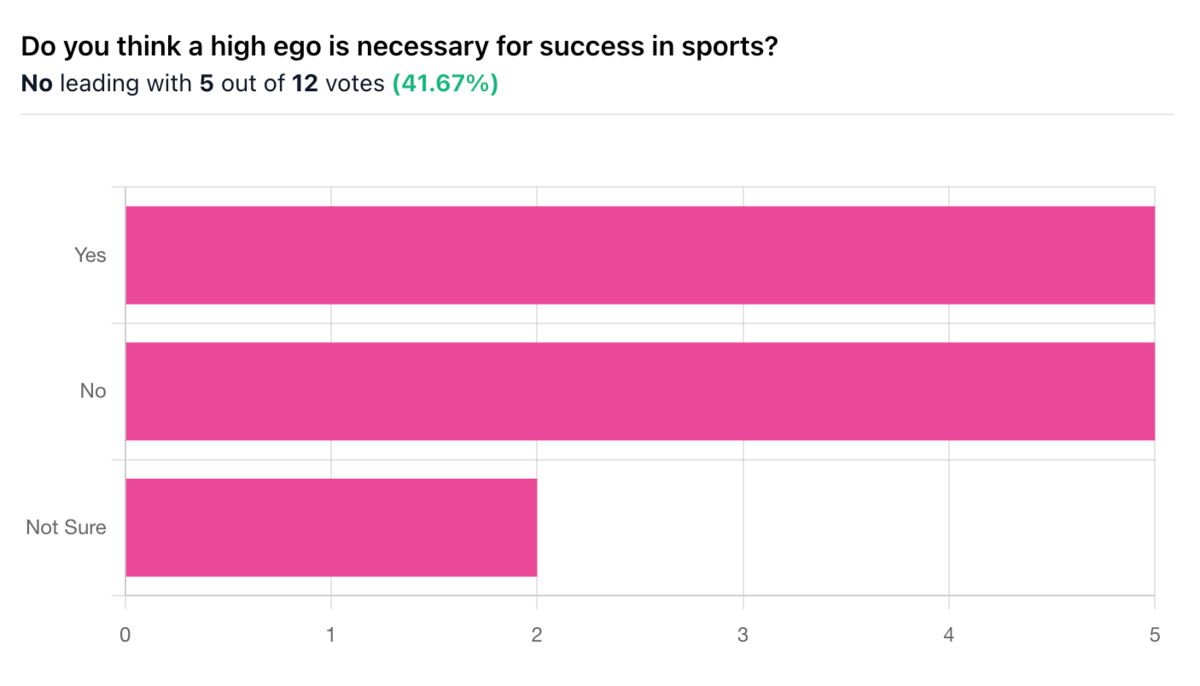Good morning! A warm welcome to the 100 new subscribers who have joined in the last week. We are happy to have you on board!
Here's what's coming:
Winning Culture in 3 Steps 🏆
Hanging with Winners by Pat Summit 🤙
Bill Walsh Gold 🥇
Read Time ~ 4 minutes
Let's dive in.

Thank you to our sponsors who keep this newsletter free for 3200+ readers.

Books, BUNDLE DEALS, FREE Resources & More: gberge.gumroad.com

💭 ONE THOUGHT
Culture WINS 🏆.
I believe that building CULTURE is the #1 job of any Coach.
You hear it all the time.
A new coach is hired and immediately talks about the new culture that he or she is going to instill. A new AD is hired at a school and talks about the culture he or she is going to focus on with coaches and students. Business leaders and school leaders talk about culture. You have a culture at your home, culture at the office, and culture on your team.
We all know that culture is critically important in teams, families, and organizations, but what exactly is culture? How do you define something so complex?
I simplify and define culture using three basic rules:
Culture is what you Allow
Culture is what you Emphasize
Culture is Every Day
In simple terms, this is culture. Let's break it down some.
1: CULTURE IS WHAT YOU ALLOW
Every day, multiple interactions occur with your team. Every day, as a leader, you make decisions as to what you allow or do not allow.
We do this as parents all the time as well.
Kids are kids. They will always try to push the envelope, even in established cultures.
Coaches need to be very conscious of this. Coaches need to realize that each interaction and decision that they make is having an impact on their Team Culture.
What are some of these daily decisions? Here is an abbreviated list of the many things that impact culture daily.
How we talk to each other?
What is the academic focus and expectations for the team?
What are the dress expectations for the team at practice and games?
What are the daily practice habits and routines?
What intensity level is expected?
How do we communicate at practice?
What are guidelines for promptness at team activities?
How do you play? What do you value?
How do we treat our teammates?
How do we stay "connected" on our team?
What are your team leader expectations?
What are the social media expectations of players?
What are your givers/vampires? Do you put up with energy vampires?
And so, so much more...
Think about all of the daily interactions you have with your team. What do you allow? What do you not allow?
What we allow each day defines our culture.
The coach has to set a standard with what he/she allows - then the team leaders must help enforce it. Team leaders and the coach become key "gatekeepers" of this culture.
Inevitably, what your team leaders "allow" behind the scenes becomes the "true" culture of the team. This is why developing team leaders is so important.
In essence, your team leaders are competing for the team culture each and every day. They have to make a choice to lead or succumb to peer pressure.
In great teams, team leaders raise or maintain the standard and bring everyone to the needed level.
In poor teams, you generally have weak or little leadership. In these teams, peer pressure pulls everyone down to a lesser standard. This is often how a toxic culture forms.
2: CULTURE IS WHAT YOU EMPHASIZE
I heard this phrase at a clinic as a young coach, and it has resonated with me for the last 25 years.
“It is not what you do, it is what you emphasize!”
These words really clicked with me when I heard them. Even as a very experienced coach, I remind myself of this quote nearly every day that I coach.
I have always been a coach with a million things going through my head.
What I learned over time is that the art of coaching or teaching is to simplify the complex. And my job as a coach was to make it and keep it simple. I learned to pick a few things to emphasize - things that are very important to me - and stick with that.
When you are able to simplify and focus on what you emphasize, it becomes ingrained in your culture. It is easier to get buy-in from kids because it is clear and understood.
Find a few things that are important to you. Emphasize them OVER and OVER again. Over time, your team will become what you emphasize.
Your culture will become what you emphasize.
3: CULTURE IS EVERY DAY
Finally, culture is every day. Nothing more, nothing less.
The second you believe your culture is set and you do not have to worry about it anymore is the day your culture changes, for the worse.
Be aware that “Culture is Every Day.”
Do not let any daily decisions you make erode what you have spent years trying to build in a program.
Make sure you address anything you view as not supportive of your culture. When you do this, you are constantly solidifying and molding your culture.
I wrote a book with many ideas and thoughts to help build your Team Culture called: Culture WINS: 50 Ways to Build a Winning Culture (click the link to find it on Amazon). These daily discussions, stories, metaphors, or motivational phrases all impact the Culture. And as a coach, molding our kids to this Culture each day is our #1 job.
Having an "everyday" focus allows you to create a strong team culture. A culture that emphasizes the following:👇
We over Me
Process over Prize
Serving over Self-Serving
Learning over Knowing
Positivity over Negativity
Encouraging over Ignoring
In summary, culture is the lifeblood of a team and program! It is the #1 job of a coach.
Culture is What you Allow. What you Emphasize. And Culture is Every Day!
Do not let your culture get stagnant. Fight for it every day with every decision you make.
Protect your culture by using these three steps to define, build, maintain, and build a team and program that will be a success!

📜 TWO QUOTES
"The time when there is no one there to feel sorry for you or to cheer for you is when a player is made."
"At some point in the season, the coach has to turn the team over to the team."

Thank you to our sponsors who keep this newsletter free for 3200+ readers.

If you're a college student or a college sports fan...You're gonna want this in your inbox. Subscribe to The GIST's brand new college sports newsletter to get 'the gist' of what's up in the NCAA and your fave conference in less than 5 minutes. Sign up for free.

🐦 THREE TWEETS

🙋🏼♂️ POLL QUESTION OF THE WEEK
What are you biggest challenges to maintaining a strong team culture?
Last Week's Poll Results:


📚 BOOKS: Culture WINS and Coaching GOLD

Books, BUNDLE DEALS, FREE Resources & More: gberge.gumroad.com

👀 LOOKING FOR MORE?
If you are looking, here are a few other resources and services I provide:

Contact Me: Greg Berge, [email protected]

